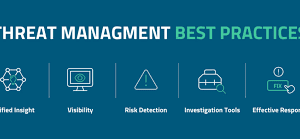Are you curious about how successful businesses keep their websites running so smoothly? Keeping a website running smoothly requires the right tools. They can make all the difference, from ensuring optimal performance to securing data.
They help streamline website management processes, saving time and resources. By leveraging the right technologies, businesses can focus more on growth and less on technical issues. Let’s explore five essential website management tools that every business should consider.
1. Hosting Services
Any successful website starts with a solid web hosting provider. While it may not be a tool in the traditional sense, it provides the essential infrastructure for website management. These services offer the necessary technology and server space to keep your site online and accessible to users.
Various services are available, including shared, dedicated, and cloud hosting, each designed to meet different business requirements. Leading providers ensure high uptime, fast load times, and robust security measures. The exemplary service keeps your site running smoothly and provides the scalability needed to grow your online presence.
2. Content Management Systems (CMS)
A Content Management System (CMS) is the backbone of any website. It enables services to easily create, edit, and manage digital content. Popular CMS platforms provide user-friendly interfaces and a plethora of plugins. These features make it easy to customise your site to fit your business needs.
Whether updating a blog or adding new products, a CMS simplifies the process. Many CMS platforms offer robust support and communities where users can find help and resources. This support system can be invaluable for troubleshooting and optimising your site. With a CMS, even those with minimal technical skills can manage a professional-looking site efficiently.
3. Website Analytics Tools
Gaining insight into your website’s performance is essential for expansion. Tools for site analytics provide information on how visitors behave. They monitor data, including bounce rates, conversion rates, and page visits. You can better grasp what works and what doesn’t with these insights.
By studying this data, businesses may make well-informed decisions to enhance customer experience and boost engagement. These instruments can also identify patterns and trends that aren’t always obvious. Businesses are able to better customise their plans and stay ahead of the competition because of this greater insight.
Furthermore, real-time analytics can be really helpful as well. They can be pivotal in making quick adjustments to marketing campaigns. Regularly reviewing analytics ensures that your site evolves with your audience’s needs and preferences.
4. SEO Management Tools
Increasing website traffic requires the use of search engine optimisation or SEO. These management tools help optimise your site for search engines. They offer keyword research, backlink analysis, and site audits.
By using SEO tools, businesses can improve their search rankings and visibility. More organic traffic and potential clients result from this. Additionally, they can help identify and rectify technical SEO issues that may hinder your site’s performance. By regularly utilising SEO tools, you can also stay current with search engine algorithms and maintain the efficacy of your efforts.
5. Website Performance Tools
A slow website can drive visitors away. The site performance tools help analyse and optimise your site’s speed. They provide detailed reports on load times and suggest improvements.
Sites that load faster provide better user experiences and rank higher in search results. Keeping your site running smoothly is crucial for retaining visitors and reducing bounce rates. Furthermore, a well-optimised website can raise conversion rates since quickly loaded pages encourage users to do desirable actions. Regular monitoring with performance tools can ensure your site remains efficient as you add new content and features.
Managing a website can be difficult, but web hosting services and similar tools can make it easier. By leveraging these resources, businesses can maintain an efficient, secure, and user-friendly site. Any company hoping to succeed online must invest in the right management resources.



































